Chinese business leader feels at home in Cuba
Updated: 2014-07-23 10:08
By CHEN WEIHUA (China Daily Latin America)
|
||||||||
|
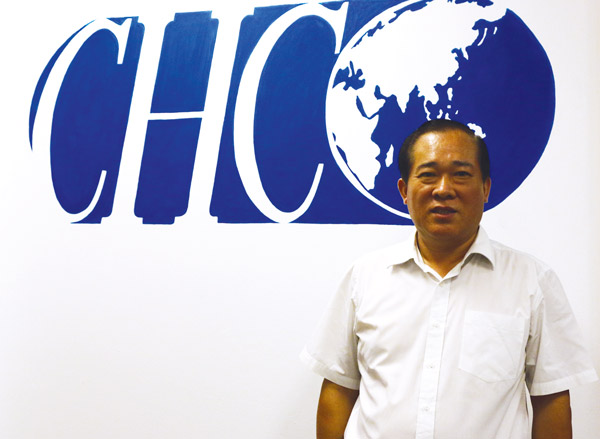 Wang Jianwei, president of the China National Huachen Energy Holdings (Group) Co Ltd (CHC) Photo / Provided to China Daily |
For Wang Jianwei, president of the China National Huachen Energy Holdings (Group) Co Ltd (CHC), Cuba is his second home.
The business executive has traveled to Cuba for more than 40 times in the past 30 years, the most being five trips within a year.
With his company's business spanning more than 70 countries, Wang said he has paid most attention to the Cuba business even though it's not among the largest for the company.
But they were eye-catching, at least on Tuesday afternoon, when the Chinese and Cuban governments and businesses signed a number of trade and investment deals during President Xi Jinping's visit to Cuba.
Under a bilateral agreement, CHC will help build a pharmaceutical factory in Cuba following the Good Manufacturing Practice (GMP) and with preferential loans provided by the Chinese government. CHC has already carried out similar projects in Ecuador and Tanzania.
Meanwhile, CHC is likely to become one of the first Chinese companies to invest in the manufacturing industry in Cuba's first and newly launched Mariel special development zone west of the capital city of Havana.
While it still has not been endorsed, Wang believes the sanitary pad and diaper factory could be put into operation next year
Over the years, CHC business in Cuba include projects such as exporting 120 locomotives to help the Cuban government's energy-saving revolution, bringing the 1,000 Yutong buses to Cuba and handling the renovation of a Cuban oil refinery.
It has also participated in the Cuban government's social welfare program by exporting Chinese refrigerators, TV sets and rice cookers to Cuba. Many LED lamps lighting some main streets in Havana also have been introduced by CHC.
Its business has covered everything from exporting Chinese electric machinery, chemicals, textiles, petroleum equipment and renewable energy products to importing nickel from Cuba.
But for Wang, doing business in Cuba also means being a good corporate citizen. Over the years, CHC has donated sports equipment to Cuba during the 2008 Beijing Olympic Games as well as tents and flashlights immediately after the Caribbean nation was struck by a severe hurricane in 2006.
"We not only want to do business, we also want to be a friendly envoy," Wang told China Daily at his Havana office, staffed by 10 people, including two Cubans.
Wang has shared with senior Cuban officials experiences about China's reform and opening up in the last four decades. He said that Cuba should not repeat China's blunder such as environmental degradation. He is happy that Cubans are aware of that.
"They could learn from some of Chinese concepts but should not follow it blindly," Wang said.
While competition in Cuba is getting tougher for CHC, often with companies also from China, Wang is not deterred. His special attachment to Cuba means CHC will not only continue to expand in Cuba, but also expand to the rest of Latin America, using Cuba as a base. CHC has already expanded to Latin American countries such as Venezuela, Ecuador, Chile and the Dominican Republic.
The 51-year-old said Cubans are very friendly to Chinese people. And as someone from Shandong province, where people are known for their outgoing character, Wang feels very much at home among Cubans.
As someone who has been teaching governance and public affairs at Peking University, Wang feels that the Chinese government has a lot to learn from Cuba.
With far less tax income compared with the Chinese government, the Cuban government has been extremely generous in public spending, according to Wang.
"The much fairer and equal education and healthcare system and the much lower corruption compared with the Chinese government are all things we should learn from," he said.
He has felt disgusted seeing corruption and people unable to afford medical care and education in China. "There is no such problem here," he said, referring to Cuba.
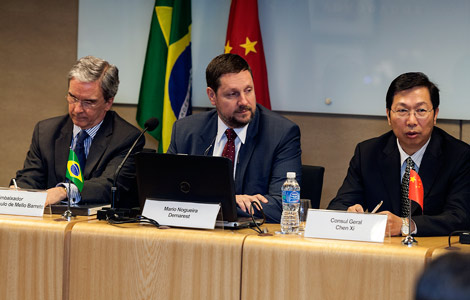
 Brazil launches China desk to handle economic ties with China
Brazil launches China desk to handle economic ties with China
 NY Wheel reels in Chinese EB-5 investors
NY Wheel reels in Chinese EB-5 investors
 The Penguins of Madagascar to enter China
The Penguins of Madagascar to enter China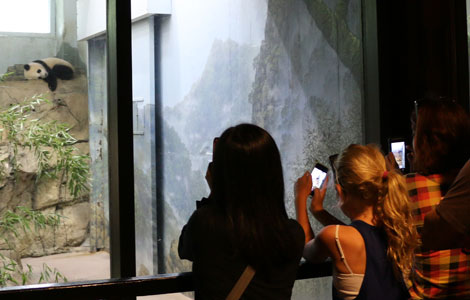
 Panda cub Bao Bao turns one
Panda cub Bao Bao turns one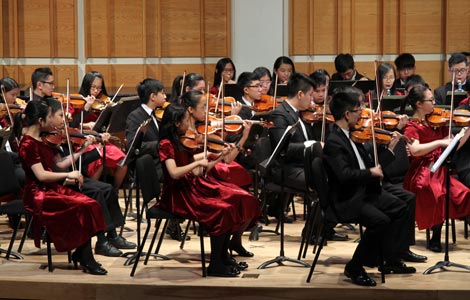
 HK kid's symphony returns to NY
HK kid's symphony returns to NY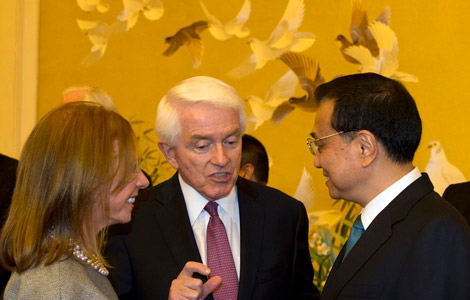
 China, US reach agreement
China, US reach agreement
 40 bodies from jet returned to Dutch soil
40 bodies from jet returned to Dutch soil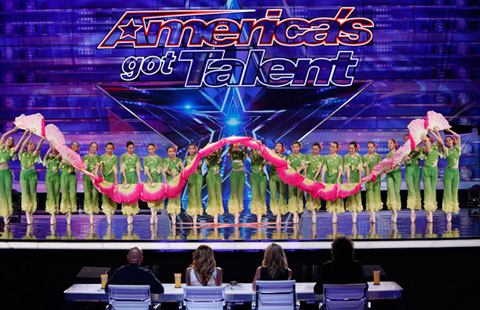
 Dance troupe's fusion performance wins over judges
Dance troupe's fusion performance wins over judges
Most Viewed
Editor's Picks

|

|

|

|

|

|
Today's Top News
Manufacturing hits an 18-month high
Transformers producers hit with breach of contract suit
US chipmaker to be deemed monopoly
Chinese still seek Beckel termination
One dead in shooting in Philadelphia
France: Air Algerie plane 'probably' crashed
TransAsia crash while landing in Taiwan
China, UC-Davis set up food safety center
US Weekly

|

|






